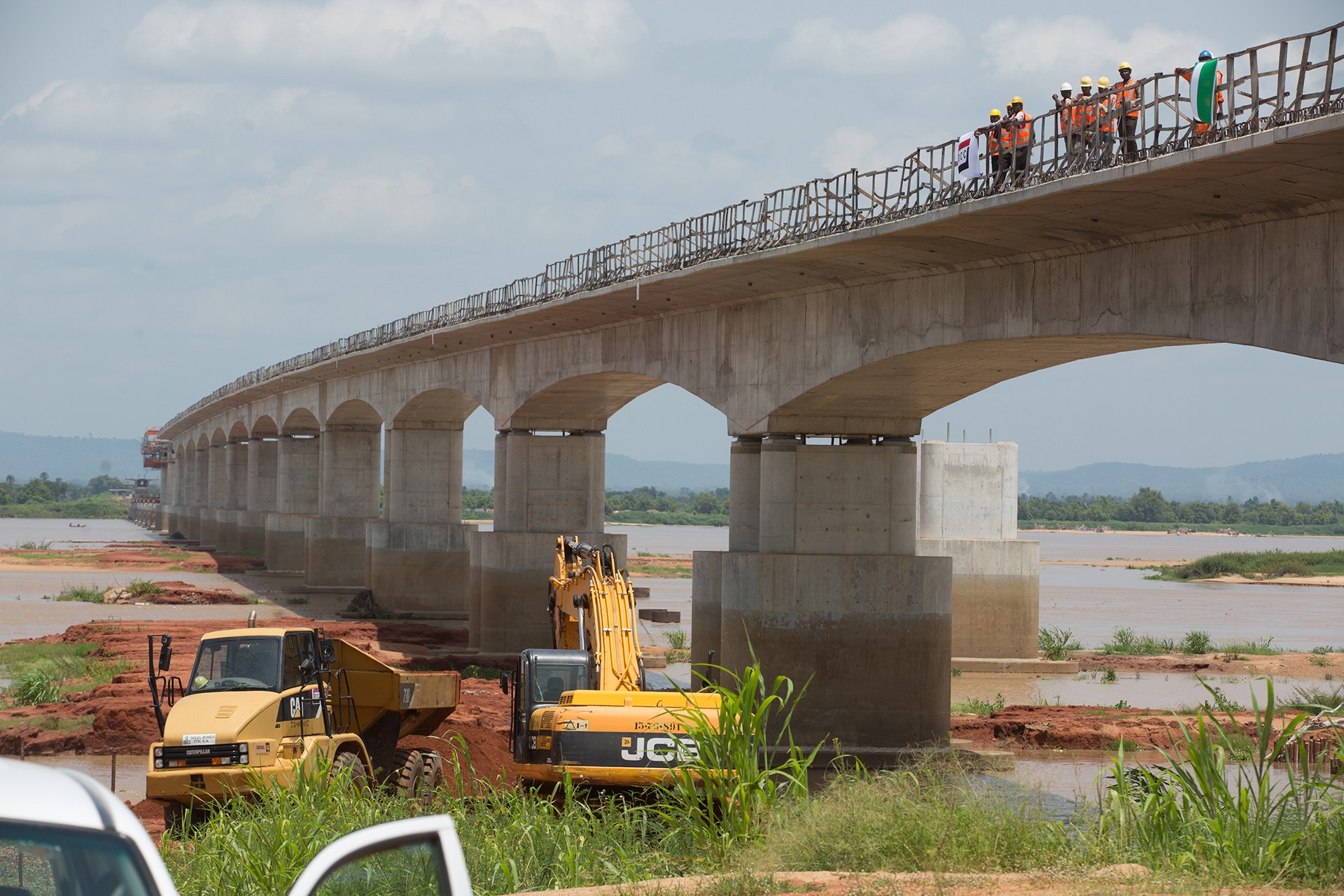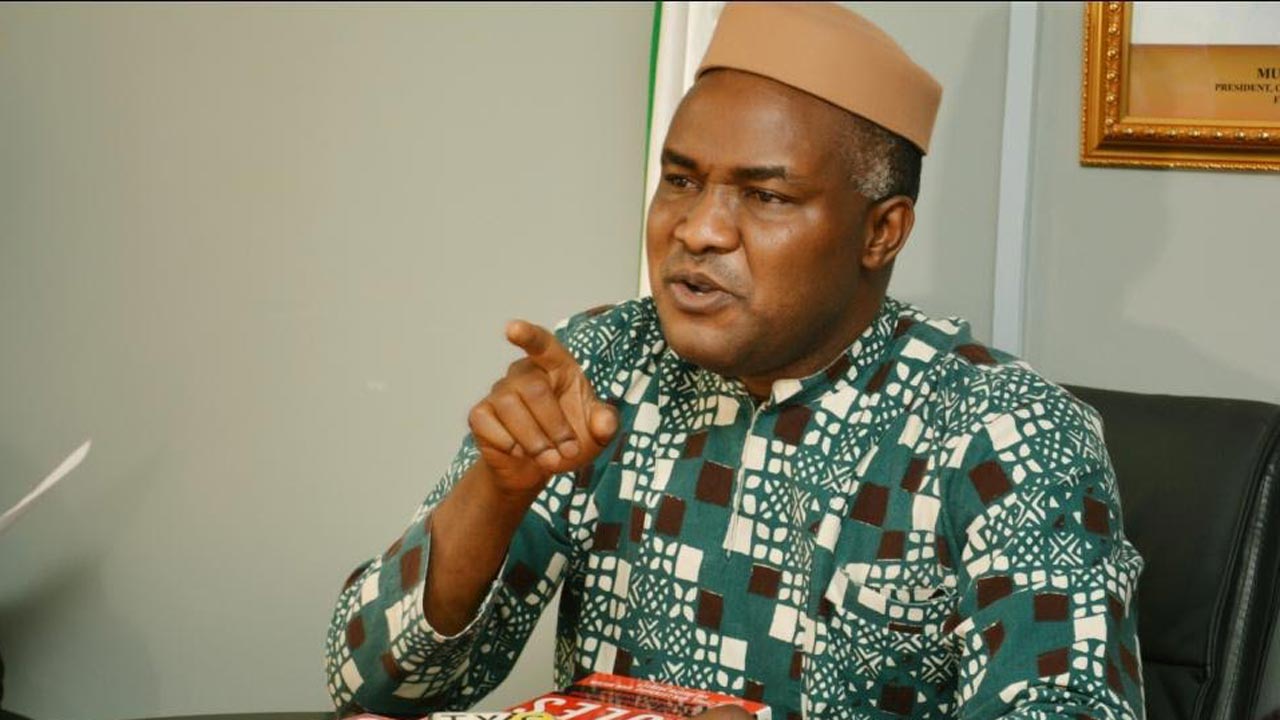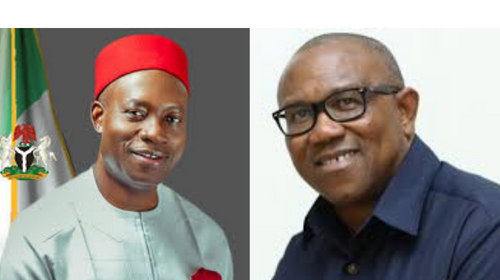By Emmanuel Onwubiko.

On paper, the federal republic of Nigeria is rated globally as one place whereby virtually it’s entire populace engage in one religion or the other with about the clear majority of the nearly 200m population identifying themselves as either Christians, Moslems or adherents of African traditional religions.
Of all these religious divides, there is however a nexus which links them together and this is the common belief in a common creator known as God and of course, these religions have ideologically ruled dishonesty as a fundamental vice that their members are asked to shun as a matter of practice.
Readers may be imagining the rationale for advancing religious arguments primarily in a piece that is set out to reflect on one of the most impactful physical infrastructures of the nation Nigeria in the 21th century especially because this singular project has lasted nearly 20yrs since inception but yet there is no end in sight for its completion.- the 2nd River Niger bridge.
The reason of course is that the writer is bewildered and astounded that a country that is known as one place whereby the clear majority of the human beings populating the geographical space are worshippers of God belonging to one theistic group or the other, it is expected that these persons must at all times elevate honesty as cardinal principle of politics.
This is because, the same people who identify themselves as adherents of the organised religions are the same persons holding political offices. But appearance is far different from reality when politicians of the Nigerian species are involved. The politicians tend to distance themselves from the centrality of honesty as ideologically brainwashed by their distinctive religions, but adopts the attitude of telling lies as a modus operandi and modus vivendi in politics.
A mystery amongst international scholars is the empirical evidence showing that Nigerians being some of the most well-known religious adherents, are also some of the most depraved and unprincipled minds when politics is involved.
Nigerian politicians tell lies to their commoners effortlessly even when Uthman Danfodio; one of the most respected fathers of one of the dominant religions stated rightly that: “Conscience is an open wound which only truth can heal”.
Reverend Father George Ehusanmi, a former Secretary General of the Catholic Secretariat of Nigeria once stated that: “As a nation, we are abundantly blessed by the Creator in both human and material terms. Yet, despite our blessings, the truth is that we so shamefully and self-consciously crippled in development because we will not face up to the realities on the ground.
The truth of Nigeria is that we have been going around in circles in the cesspit of greed and selfish interests, in our tribal and clannish cocoons, and in fiery allegiance to our ethnic Cleavages”. This self-evident truth is exactly why the South East of Nigeria that has consistently being politically marginalised and has never produced an executive President since 1960, is also marginalised in the distribution of national infrastructures and economic assets by the Federal government.

Coming down to the nitty gritty of the fundamental basis of the aforementioned facts, the history of the yet to be completed second Niger bridge which would cross many states in the South of Nigeria, is a good example of when persons parading about as adherents of one religion or the other , have made dishonesty their central political ideological character.
The truth also is that, the more lies that are uttered by politicians in Abuja about the second Niger Bridge, the more it would seem that religion means nothing to the Political rulers of contemporary Nigerian society. Even some persons who are not seriously into religions, have started saying that religions are to be blamed for the widening chasm between the few affluent Nigerians and the millions of people are are absolutely poor.
The times of London reportedly wrote an editorial on the relationship between religion and wealth in which the United Kingdom’s based medium tend to argue that the unprecedented rise in religiosity amongst Nigerians, signposted the rise in poverty amongst a clear majority of the people.
In the case of the second Niger bridge, it would seem that those who make policies in Abuja, often discard the notion of honesty and have embraced ‘political voodooism’ of anything but the truth as their ideology in seeking to circulate incoherent communications on issues about why the second Niger bridge has not being completed and why there is no end to the lies by politicians about it.
Beginning from the political eras of chief Olusegun Obasanjo, Umaru Musa Yaradua , Good luck Jonathan and now Muhammadu Buhari, it has being from one smooth lie to the other about the completion date of the second Niger bridge described by even the Government as one of the pressing needs of the people of southern Nigeria in the 21th century.
This is how one of the construction firms working for Nigerian Government described the second Niger bridge.
The writer of the brief history says that construction of the Second Niger Bridge project in Nigeria on track. The governor of Anambra state as would be seen in this piece is of a contrary opinion saying that the equipment to construct the second Niger Bridge are held up in Germany.
However, the official propagation is that construction of the Second Niger Bridge project in south-eastern Nigeria is on track and progressing well.
The Federal Ministry of works in charge of Anambra state Engineer Adeyemo Ajani revealed the reports and said that the project is likely to be completed before the approved date.
The official said: “The Second Niger Bridge project was initiated by the former President Goodluck Jonathan, and the vision has been sustained by the present government of President Muhammadu Buhari.
The bridge is being constructed across Nigeria’s Niger River and is intended to ease traffic congestion and will span from Asaba to Ozubulu and Ogbaru areas. The project is undertaken on behalf of the Nigerian federal government by the Federal Ministry of Power, Works and Housing jointly with the Nigerian Sovereign Investment Authority.
The Second Niger Bridge construction is a Nigerian federal government project that is 1.6 km-long and furnished with other ancillary infrastructure including a 10.3 km highway and a toll station.
The project is being developed through a Public Private Partnership involving Julius Berger –NSIA Consortium as a Design, Finance, Build, Operate and Transfer (DFBOT) model to cost US $653m with the Federal Government contributing US $150m while the consortium will raise the rest of the funds.
To be sure, the construction of the Second Niger Bridge well-survives the delay in the approval of the Nigerian 2019 national budget, the government established a fund ‘Presidential Infrastructure Development Fund (PIDF)’ from where it finances the project.
Work capacity of the project has employed between 1000 and 1300 workers optimally engaged. According to Engineer Adeyemo Ajani, the project is currently is 23% complete. The new Niger Bridge upon completion will also facilitate vibrant commercial exchanges especially in the host South-East region of the country, Nigeria.”
We will read up another propaganda by another official of government heading the Sovereign wealth fund office who gave a contradictory statements on this same bridge and asserted another exaggerated statistical data on the bridge.
However, an official literature gives us a bird’s eye view on the project thus: “The Second Niger Bridge is a key national infrastructure, with immense socio-economic benefits for the contiguous states and indeed the entire nation.
Upon completion, the bridge will ease traffic flow, improve road safety, and create greater opportunities for local residents by advancing the commercial viability of the immediate area and regenerating economic life.
The scope of work includes the construction of 1.6 km long bridge, 10.3 km Highway, Owerri interchange and a toll station.”
Now here is another lying angle from the same government which had only few months back stated that the bridge was 23% completed in which another government official exaggerated the statistics regarding where the bridge is at the moment.
The Managing Director of the Nigeria Sovereign Investment Authority (NSIA), Mr. Uche Orji recently disclosed that the ongoing construction of the Second Niger Bridge has achieved a completion rate of 47 per cent a clear contradiction from the position of the Federal director in charge of the ministry of works in the South East of Nigeria.
However, speaking during an interview at the weekend, he expressed optimism that the project would be completed in 2022.
“Work is going on at the second Niger Bridge and it is over 47 per cent completed. It is a public-private partnership. The Ministry of Works awarded that contract, but the full concession agreement would be signed very soon that would hand it over to the NSIA,” he explained.
According to him, the NSIA would also be fully involved in the proposed InfraCo by the Central Bank of Nigeria (CBN), which also would involve the Africa Finance Corporation.
Orji said the proposed infrastructure company which has been approved by the President, would be a vehicle to support the development of infrastructure in the country.
And then emerged a totally different angle to the stories about the second Niger Bridge with the revelation by the Anambra state governor that the equipment needed for the construction of the 2nd River Niger bridge are held up in Germany. He spoke about roads also and this reminds us of another lie told by the government that it has constructed 600 roads within five years.
Governor Willie Obiano of Anambra State only Yesterday told President Muhammadu Buhari that construction work at the Onitsha-Enugu federal highway has slowed down to almost zero level.
The governor also begged the President to intervene in ensuring that the equipment purchased for the ongoing work at the Second Niger Bridge which are still in Germany are brought to Nigeria for the speedy completion of the project on record time.
Speaking with State House Correspondents after meeting behind closed-door with the President, Governor Obiano, who is the only governor on the platform of the All Progressive Grand Alliance, APGA, said he sought the assistance of the federal government for the settlement of about 5,000 displaced people from his state.
On the reason for the visit, he said: ”I come once in a while to brief Mr. President on the developments we are having in Anambra State and we do have a lot of beautiful developments. We also have some that bothered me to come right now, which is the flood.
“Four of my local governments, that is four out of 21 are under water now as we speak because of this flood and it affected a lot of things, properties which include farm produce and what have you.
”So, I called on Mr. President to assist us at this very crucial time being a COVID-19 time and now, the flood we are experiencing this time around is like the one of 2012 which is terrible. So, he promised to do something immediately.
”I did also told him about the progress so far made on the 2nd Niger Bridge. If you watch from their side, you will see that almost half of that bridge has been done.
”But because the water level is very high, the contractor working in that bridge requires some equipment which they’ve already purchased long ago sitting in Germany and requires some support from Central Bank to be able to be brought in. I did mention that to him and the President noted that and said he will do something about that.
“We did discuss some other roads, federal roads that are in very bad shape, about six of them and I requested Mr. President to see if they can go into their budget as they prepare for the budget of next year.”
As December is fast approaching meaning that over 40 million Nigerians that will travel to the South East of Nigeria will still confront the nightmares associated with poor federal roads infrastructures in that part of Nigeria and the only major bridge across the River Niger built since 1965 will be subjected to horrendous over use by these huge numbers of commuters who would travel to the South East of Nigeria and other Southern States such as Rivers, Akwa Ibom, Cross Rivers, and Bayelsa from across the Country.
They may have to ply this rapidly collapsing first Niger bridge since the central government has been unable to deliver the second Niger Bridge since over a decade when the first construction work started and the people have been fed continuously with propaganda and political lies regarding the completion date for this critically important national asset East of the Niger.
Millions of road users in the East are already asking the critical question of when this jinx of the unending second Niger Bridge would be demystified.
*EMMANUEL ONWUBIKO is head of the HUMAN RIGHTS WRITERS ASSOCIATION OF NIGERIA (HURIWA) and blogs @www. huriwanigeria. com, www.thenigerianimsidernews.com.
Disclaimer: “The views/contents expressed in this article are the sole responsibility of Emmanuel Onwubiko and do not necessarily reflect those of The World Satellite. The World Satellite will not be responsible or liable for any inaccurate or incorrect statements contained in this article.”



